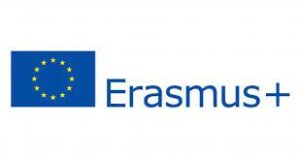

Project background:
Global environmental challenges are prone to misconceptions and often become a subject of disinformation. Distorted concepts contribute to inadequate responses to the environmental challenges and limit the achievement of local and global environmental goals, including the goals of the Erasmus + projects. One possible way to contribute to the growth of systematic understanding about the environment is to offer school children and teachers opportunities to take part in various educational interventions.
These interventions need to be SAFE (sequenced, active, focused and explicit) in order to better support long-lasting changes in understanding (see further Durlak et.al., 2011). Technology can be used to facilitate the learning process in outdoor environments, but it needs to be well designed to actually support changes in knowledge besides having fun outside. Research has shown that educators have lack of knowledge, skills, time etc. to use purposefully offered technological opportunities and need more guidance. Moreover, teachers often lack the skills and knowledge to support students so that they can gain an understanding of complex systems (Rates et al., 2016). Today ́s environmental challenges that we are facing and future decisions demand complex understanding. Thus, DISCOVERY TRAIL project aims at facilitating knowledge on how individuals’ understanding of complex environmental topics develop (e.g. biodiversity, climate change) and how knowledge development can best be supported by using digital outdoor learning tool Avastusrada (www.avastusrada.ee/en). The application Avastusrada allows quickly testing the design and applicability of different tasks and evaluating their effectiveness on learning performance. DISCOVERY TRAIL project brings together specialists from different disciplines (educational psychology, education, ecology, digital technologies) and countries that helps to widen the scope of information and experience change. Teachers working together during the project with non-formal education specialists helps to understand better how to support this collaboration best in order to achieve long-lasting changes in students’ global challenges related to understanding.
Objectives:
Today’s challenge in general is to find ways to stop further damage to our bio- and geosphere, that is, biodiversity and climate systems that ensure our existence. First and foremost it means change in behavioral choices of society members. In order to bring about consistent, permanent and transferable behavioural change, one should deeply understand the need for the change, that is, internalize the reasons and benefits of the transfer.
If the goal is to preserve vulnerable complex systems, realizing the nature of these systems would form the core mechanism that should lead the behavior. Thus, our main goal is to develop and elaborate effective and comprehensive ways to support deep understanding of complex systems of students, using both the state-of-the art knowledge about how the conceptual change occurs and the possibilities of smart digital learning design. DISCOVERY TRAIL project interventions contribute to change in behavior through change in the conceptual tools that students use to make sense of the world. Also, Avastusrada gives an opportunity to help students to notice their own thinking – give metacognitive prompts and prompts about how to think about complex systems (see Tripto et.al. 2016 for further information about metacognitive prompts). Environmental challenges relate to a wide range of different behaviors that have a complex relationship with the underlying environmental problem. It is therefore useful to equip people with concepts that are abstract enough to be transferable over different situations. This requires educational interventions that can enable active, effortful, error-prone and slow processes of reviewing and re-constructing individuals’ previous concepts, but at the same time, make this process as effective as possible. Digital outdoor learning tools can help teachers and non-formal education specialists to support students’ conceptual change process.
Thus, the objectives on the DISCOVERY TRAIL project are
- to support overall understanding about biodiversity and climate change and induce sustainable behaviour through prioritizing different aspects of these in the target groups (teachers, non-formal education specialist, students);
- to support teachers and non-formal education specialists of using digital outdoor learning tool purposefully with a goal of eliciting conceptual and behavioural change and understanding of complex systems in students;
- to support forming new networks of different specialists related to environmental education and
- to create supportive materials for teachers and non-formal education specialists all over the Europe when using digital outdoor learning tool (including validated Avastusrada tracks in various languages related to biodiversity concept and manual for using the Avastusrada with students of different ages and background knowledge). As a result of the piloting, validation, application and improvement of Avastusrada, we are able to demonstrate how participating students’ conceptual understanding of some of the complex topics about bio- and geosphere (that is, biodiversity and climate change) changes during the interventions that is related to their everyday behavioural choices, as well as their reported change of some relevant pro-environmental behavior.